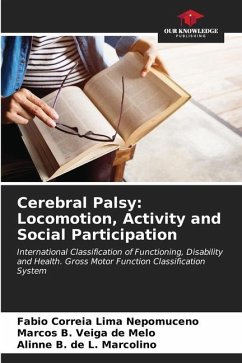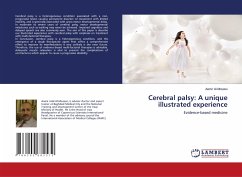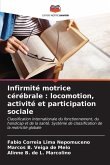Chronic non-progressive encephalopathy of childhood, originally known as cerebral palsy (CP), is attributed to non-progressive lesions that occur in the development of the brain during the foetal or infant period. The motor disorders of cerebral palsy are often accompanied by sensory, perceptual, cognitive, communication and behavioural alterations, epilepsy and secondary musculoskeletal problems. In view of these disorders, it is necessary to use standardised and validated assessment tools based on the International Classification of Functioning, Disability and Health (ICF). The purpose of the ICF is to classify the components of health, divided into four main components: body functions, body structures, activities and participation, and environmental factors. Thus, the Gross Motor Function Classification System (GMFCS) for lower limbs and upper limbs aims to meet the need to establish a standardised system for classifying motor functionality, with a more accurate assessment.








